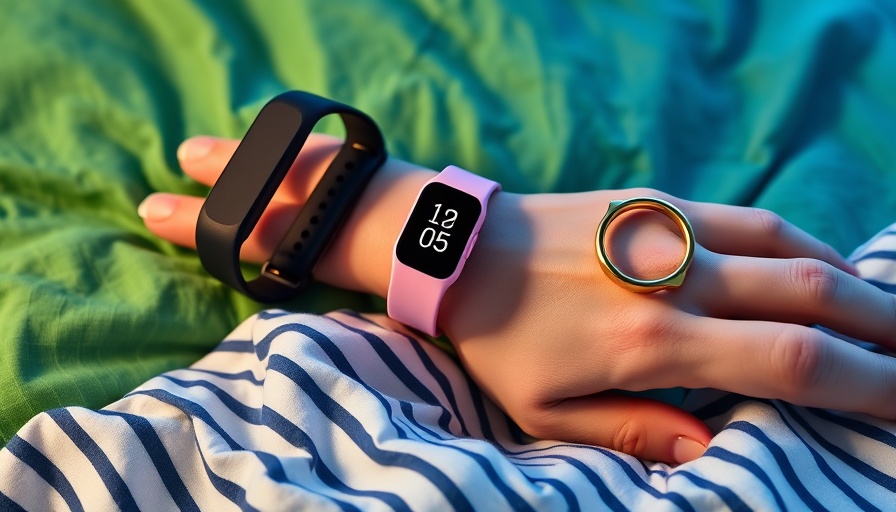
Sleep Trackers: Revolutionizing Rest and Recovery
In today’s fast-paced world, where stress and overwork are often badges of honor, the significance of quality sleep can’t be overstated. Sleep trackers have emerged as essential tools not just for enhancing sleep but for improving overall health and wellness. With the right device, anyone can monitor their sleep patterns, making informed adjustments to their routines for better vitality. After all, restful sleep is a cornerstone of optimal health and wellness.
How Sleep Trackers Improve Your Health and Wellness
These innovative devices do more than just measure how long you sleep; they analyze sleep cycles, heart rate, and even breathing patterns. This data can reveal not only how restful your night was but can also shed light on larger health issues. For instance, disruptions in sleep can be early indicators of conditions like sleep apnea or anxiety. Armed with this knowledge, users can pursue community health and wellness initiatives or consult healthcare professionals for advice on improvement strategies.
The Current Landscape of Sleep Technology
From smartwatches to dedicated sleep aids, the sleep tracker market is booming. Options are plentiful, but how do you choose the right one? Popular models include the Fitbit, Oura Ring, and Emfit, each catering to diverse needs and preferences. Each device involves unique algorithms and functionalities, ensuring you find one that fits your personal health and wellness plan. Have you considered how these tools might fit into your lifestyle medicine plans? Enhancing your sleep could be the first step toward achieving peak wellness and emotional resilience.
Top Considerations When Choosing a Sleep Tracker
Before diving into sleep tech, reflect on your specific needs. Do you seek something unobtrusive for nighttime wear or a multifaceted device that also tracks daily activity and heart health? Most importantly, ensure that the tracker aligns with your health and wellness goals, whether enhancing recovery from exercise, managing stress, or simply aiming for restful nights. Community health and wellness events often demonstrate these products, allowing potential users to experience their benefits directly.
Real-World Impact: Personal Experiences With Sleep Trackers
Many users share transformative stories; for example, one individual discovered through their tracker that they weren’t entering REM sleep often enough. After consulting a sleep specialist, they made lifestyle changes that significantly improved their sleep regime, underscoring how data-driven insights can effectively guide personal health decisions. What’s more, this trend reflects a broader movement toward lifestyle medicine, where everyday people leverage technology to elevate their health proactively.
Future Predictions: Where Is Sleep Technology Headed?
The future of sleep trackers is bright, with advancements such as AI integration and personalized coaching based on sleep data on the horizon. Imagine a system that not only tracks sleep but also provides tailored adjustments through notifications, thereby enhancing your entire health and wellness journey. With tech companies leading the charge, quality sleep will undoubtedly be intertwined with innovations in personal health.
Conclusion: Embracing Sleep for Optimal Health
Incorporating a sleep tracker into your routine can be a game changer, significantly impacting your health and wellness journey. With data at your fingertips, you can make informed decisions about lifestyle changes, ultimately leading to healthier outcomes. As we prioritize our well-being in this ever-demanding landscape, let’s not forget the role of sleep—and the technology that can facilitate it—in achieving our best selves.
 Add Element
Add Element  Add Row
Add Row 




Write A Comment